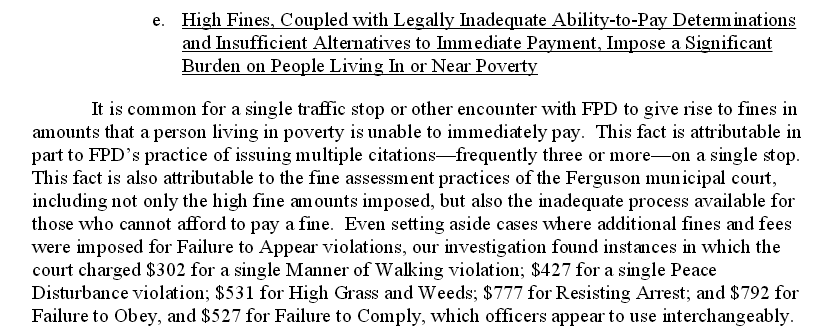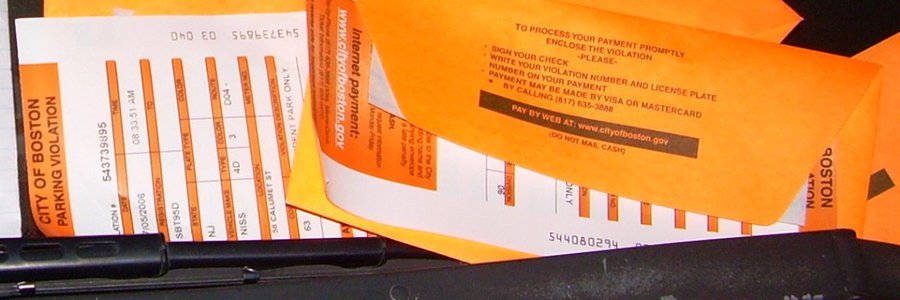Blank Check: How local police fund themselves with fines and fees
One of the findings that came in the aftermath of protests in Ferguson, MO was that the City of Ferguson was increasingly funding its municipal operations with the use of fines, including budgeting 23% of its FY2014 revenue from them.
As the New York Times reported, these fees included $531 for high grass and weeds in a yard, $777 for resisting arrest and $792 for failure to comply with a police officer.

With this project, you can help fund a national look at just where and how fines are used to fund everyday government operations, and help shed light on how many agencies are using fines as a backdoor way to tax their citizens with little oversight, scrutiny, or public participation.
We will be requesting five years with of data on how fines are collected from as many agencies as we can, and then working to analyze the results. The requests will all be filed publicly, so you can follow along on our progress.
We’ll be requesting the following information from agencies:
-
A copy of any official calculations of revenue coming from court fees and fines between FY 11 and FY 15, or calendar year 2010 and calendar 2014 if your government operates on a calendar year budget cycle.
-
Accounts Receivable databases that cover fines and fees paid for government services by individuals, rather than businesses. This would include Revenue Journals that cover such payments, as well as other financial statements that cover income from fees and fines.
-
Any logs of appeals of fines that is kept by this agency, including, if the log has it, outcome of the appeal, payments made, and other fields that are present in such a log.
-
A copy of contracts with any vendors that help manage the assignment, collection, or management of fees and citation information. This would include contracts with vendors that provide parking ticket software, for example, as well as court fees.
-
The record layout for any databases that are used to track the assignment, collection, or management of fees, fines and citations. This would just be a copy of the header columns in these databases, and not the information in the databases.
The latter two categories are useful because understanding what software is being used to track fees and fines can give a much greater sense of what is requestable, and opens up the possibilities of then geolocating fines against Zip Codes or even more granular data such as demographics.
Image by Daniel Hoherd via Flickr and is licensed under CC BY-NC 2.0
1 Article

Help uncover the nation’s dependence on local court fees and fines
For the past year, Sunlight has been actively exploring the landscape of U.S. criminal justice data. Now they need your help to get critical data on how cities are using fines to fund their operations - at the expense of justice.
13 Requests
No Responsive Documents
Fines and Fees in Operating Budget (Akron Police Department)
Michael Morisy sent this request to the Akron Police Department of Akron, OH
No Responsive Documents
Fines and Fees in Operating Budget (Baltimore City Police Department)
Emma North-Best sent this request to the Baltimore Police Department of Baltimore, MD
Withdrawn
Fines and Fees in Operating Budget (Bellevue Police Department)
Michael Morisy sent this request to the Bellevue Police Department of Bellevue, WA
Withdrawn
Fines and Fees in Operating Budget (Charleston Police Department)
Michael Morisy sent this request to the Charleston Police Department of Charleston, SC
No Responsive Documents
Fines and Fees in Operating Budget (Chicago Police Department)
Michael Morisy sent this request to the Chicago Police Department of Chicago, IL
Completed
Fines and Fees in Operating Budget (Los Angeles Police Department)
Michael Morisy sent this request to the Los Angeles Police Department of Los Angeles, CA